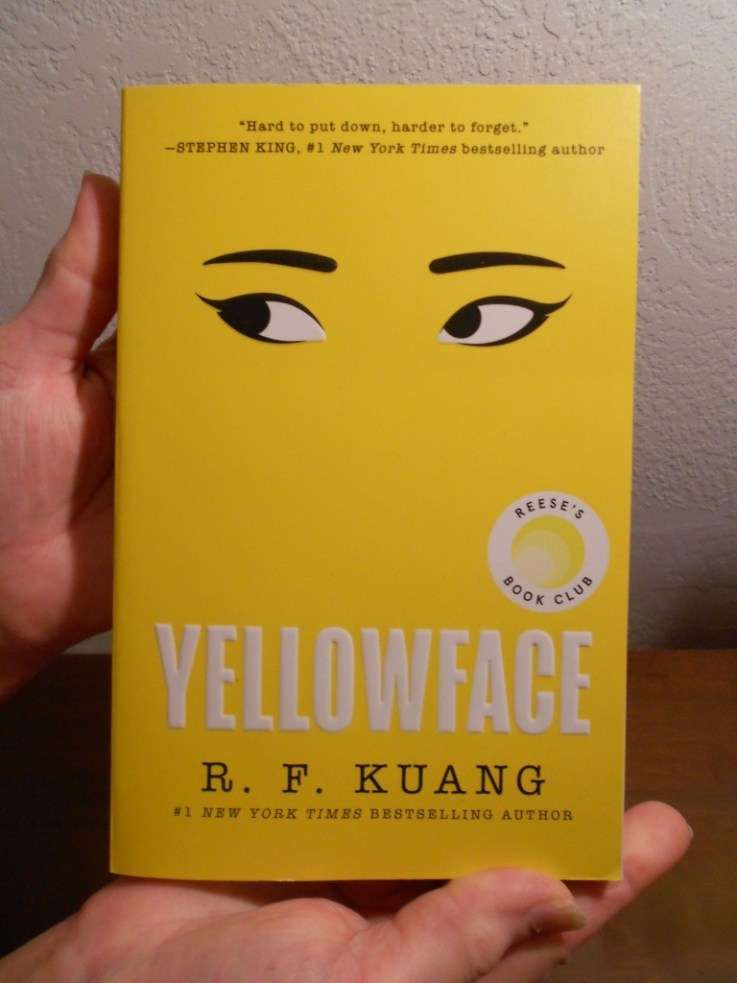
At the heart of Yellowface by R.F. Kuang is a brazen act of literary theft. June Hayward, a writer perpetually overshadowed by her more successful contemporary, Athena Liu, finds herself presented with an unthinkable opportunity. When a freak accident claims Athena’s life, June, who happens to be present, seizes the moment, claiming Athena’s unfinished manuscript as her own. This act of desperation in this Yellowface book sets in motion a chain of events that exposes the cutthroat nature of the publishing industry and the lengths to which some will go for recognition.
Disclaimer: Some links found on this page might be affiliate links. If you click an affiliate link and make a purchase, we may earn a commission. As an Amazon Associate we earn from qualifying purchases.
This isn’t just a book of literary fiction; Yellowface is a social experiment disguised as a thriller, and it’s guaranteed to leave you questioning everything you thought you knew about authorship and identity. R.F. Kuang’s Yellowface has ignited a firestorm of discussion, and for good reason. At its core, it’s a story of literary theft: June Hayward, a struggling writer, seizes the opportunity to claim the work of her deceased colleague, Athena Liu, rebranding it – and herself – in the process.
The Unraveling of June Hayward: Lies and Deception
Fueled by a toxic cocktail of ambition, insecurity, and subtle racial slights, June Hayward’s voice becomes a chilling study in unreliable narration. From her bold theft of Athena Liu’s manuscript to the calculated reinvention of herself as Juniper Song, she reveals a character willing to sacrifice integrity for recognition. Her internal monologues offer disturbing glimpses into her biased mind, where racial slights and justifications intertwine, showcasing a woman deeply entrenched in denial.
As she navigates the treacherous waters of her stolen success, June’s increasingly desperate attempts to maintain her lie, coupled with the unsettling presence of Athena’s ghost and its social media presence, expose the psychological toll of her deception, making her a protagonist as fascinating as she is severely flawed.
June’s personal journey of fraud and deception creates a space to explore the broader themes of Yellowface. Her actions, driven by a toxic mix of ambition and insecurity, serve as a lens through which R.F. Kuang examines the complex issues of literary and cultural theft, race and the calculated crafting of an online persona. The novel delves into the ethical gray areas of storytelling, questioning who has the right to tell certain stories and how the pursuit of success can blur the lines between ambition and exploitation.
Exploring the Core Themes:
Literary Theft and Ownership
Yellowface touches upon the provocative question of who owns a story. June’s theft of Athena’s manuscript raises critical questions about literary ownership and the ethical implications and taking the work for her own benefit. Kuang challenges readers to consider the line between inspiration and theft, and how the publishing industry often prioritizes marketability over authenticity. The novel forces us to confront the uncomfortable reality that stories, especially those rooted in underrepresented groups, can be used to make money and exploited for personal gain. This is further complicated by June’s belief that since she is the one that finished the book, that she owns the book.
Social Media and the Performance of Identity
In the age of social media, identity has become a carefully curated performance, and Yellowface skillfully explores this phenomenon. June’s online persona as Juniper Song is a fabrication, designed to appeal to a specific audience. Kuang critiques the calculated crafting of online personas and online activism, where genuine engagement is often overshadowed by self-promotion. The ghost of Athena, and the Twitter account, serve as a constant reminder of June’s fraud, and the power that social media has to expose lies.
R.F. Kuang’s Yellowface book is a compelling and timely exploration of literary theft and identity, raising critical questions about the publishing world and the nature of success. This novel leaves the reader with a lot to think about. Check it out for your book collection!
Thanks to HarperCollins for the #gifted book for this review.








